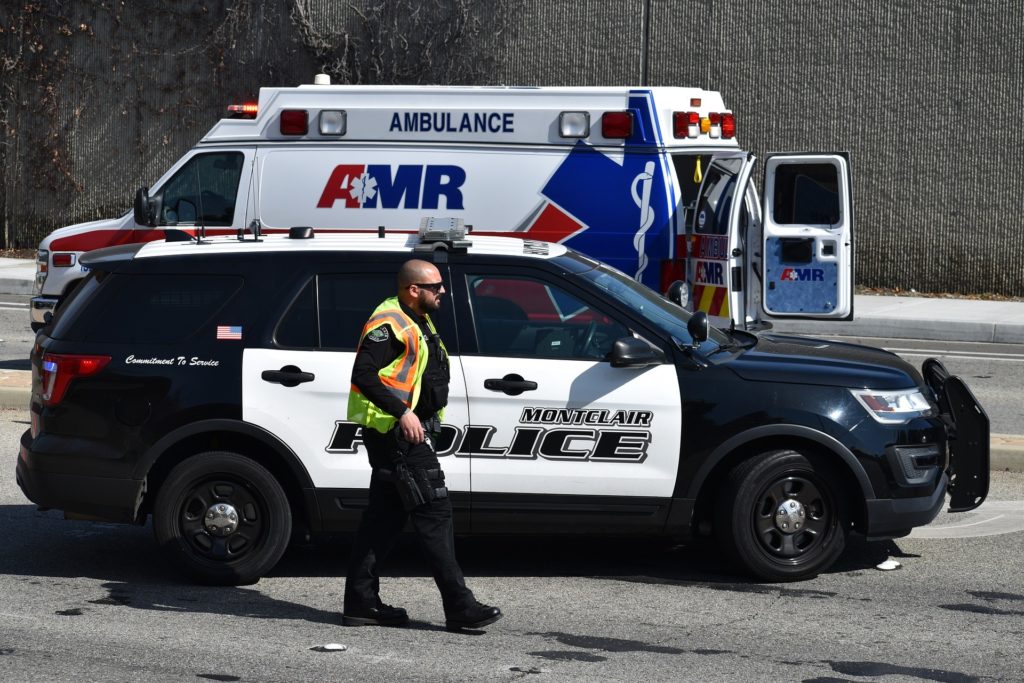
While for most people, a stressful day on the job might mean missing an important deadline or dealing with a grouchy customer, police officers regularly face life-and-death situations and are first-hand witnesses to traumatic events. Thanks to this constant exposure to high-stress, traumatic situations, coupled with a work culture that often discourages officers from seeking mental health help, substance use disorder in police officers is alarmingly high.
Rates of Substance Use Disorder in Police Officers
Unfortunately, research on substance use disorder in police officers is somewhat limited, but the existing data indicate substance use disorder is a widespread problem among law enforcement personnel. For example, one study found that the rate of substance abuse among police officers is as high as 20 to 30 percent [1].
In contrast, rates of alcohol dependence and drug use disorders among the general population are approximately 5.8 percent and 9.9 percent, respectively [2], [3]. In a study on police officers in Australia, 48 percent of male officers and 40 percent of female officers said they engaged in binge drinking, drank excessively, or engaged in harmful/hazardous drinking in the past three months [4].
Another report on substance use disorder in police officers concluded that more than one in every six police officers needs professional intervention for their alcohol consumption, and one in every twenty officers lives with an untreated alcohol use disorder [5]. While alcohol is the most common substance of abuse among police officers, American Addiction Centers reports police officers also suffer from addictions to prescription painkillers, benzodiazepines, heroin, and marijuana [6].
Substance Abuse in Police Officers Linked to On-the-Job Stressors
Researchers have identified several possible reasons for why rates of substance use disorder are significantly higher among police officers than the general population, including mistreatment of work injuries, social pressures to drink (the police culture often encourages alcohol use), and endeavoring to sleep or stay awake [7]. One of the most common causes of substance use disorder is work-related stress/anxiety problems like trauma-induced depression and PTSD.
 In addition to working in a high-risk, fast-paced job environment involving long shifts and little sleep, police officers are regularly exposed to traumatic and violent events. In fact, studies cited by the National Alliance on Mental Illness (NAMI) reveal that between 7 and 19 percent of police officers experience PTSD symptoms compared to only 3.5 percent of the general public [8].
In addition to working in a high-risk, fast-paced job environment involving long shifts and little sleep, police officers are regularly exposed to traumatic and violent events. In fact, studies cited by the National Alliance on Mental Illness (NAMI) reveal that between 7 and 19 percent of police officers experience PTSD symptoms compared to only 3.5 percent of the general public [8].
Unfortunately, many police officers are not given the tools they need to properly cope with the trauma and stress they deal with on a regular basis. “‘When I became a cop in 1985, we were told nothing should bother you, just keep it moving,’” says police officer Mark Dibona in an interview with the criminal justice news service, The Crime Report [9].
Officer Dibona goes on to share how he eventually mustered the courage to open up to his supervisor about his struggles with depression, PTSD, and drinking. Instead of receiving help, Dibona was told to “‘toughen up’” and “‘go home and have a beer; the feeling will eventually die’” [10].
Tragically, this belief that police officers should be tough and are somehow weak if they need help is still prevalent among police officers today, keeping many officers from seeking the help they need. And without professional help or the ability to openly talk about mental health struggles with their community/colleagues, many police officers turn to alcohol or drugs as a way to cope with their mental health struggles.
If you or a loved one are struggling with substance use disorder, seek professional help today. Start by talking to a friend, family member, or someone else you trust, or call the Substance Abuse and Mental Health Services Administration (SAMHSA) 24/7 helpline at 800-662-4357 to get referrals to local treatment facilities, community-based organizations, and support groups.
References:
[1] Kraska, P. B., & Kappeler, V. E. Police On-Duty Drug Use: A Theoretical and Descriptive Examination. HeinOnline. https://heinonline.org/HOL/LandingPage?handle=hein.journals%2Fajpol7.
[2] Grant BF, Saha TD, Ruan WJ, et al. Epidemiology of DSM-5 Drug Use Disorder: Results From the National Epidemiologic Survey on Alcohol and Related Conditions–III. JAMA Psychiatry. 2016;73(1):39–47. doi:10.1001/jamapsychiatry.2015.2132
[3] U.S. Department of Health and Human Services. Alcohol Facts and Statistics. National Institute on Alcohol Abuse and Alcoholism. https://www.niaaa.nih.gov/publications/brochures-and-fact-sheets/alcohol-facts-and-statistics.
[4] Richmond RL, Wodak A, Kehoe L, Heather N. How healthy are the police? A survey of life-style factors. Addiction. 1998;93:1729–1737.
[5] Miller, T. R., & Galvin, D. M. ASSESSING AND RESPONDING TO SUBSTANCE MISUSE IN LAW ENFORCEMENT*. https://law.siu.edu/_common/documents/law-journal/articles-2016/spring-2016/12%20-%20Miller%20-%20sm.pdf.
[6] Edited by Editorial StaffLast Updated: June 11, 2019. Substance Abuse Among Police. American Addiction Centers. https://americanaddictioncenters.org/police.
[7] Miller, T. R., & Galvin, D. M. ASSESSING AND RESPONDING TO SUBSTANCE MISUSE IN LAW ENFORCEMENT*. https://law.siu.edu/_common/documents/law-journal/articles-2016/spring-2016/12%20-%20Miller%20-%20sm.pdf.
[8]Law Enforcement. NAMI. https://www.nami.org/Advocacy/Crisis-Intervention/Law-Enforcement.
[9] Thomas, T. S., & Staff, T. C. R. (2018, March 22). PTSD: ‘The Dirty Little Secret of Law Enforcement’. The Crime Report. https://thecrimereport.org/2018/03/21/ptsd-the-dirty-little-secret-of-law-enforcement/.
[10] ibid.
About the Author:
 Sarah Musick is a freelance writer who specializes in eating disorder awareness and education. After battling with a 4-years long eating disorder, she made it her mission to help others find hope and healing in recovery.
Sarah Musick is a freelance writer who specializes in eating disorder awareness and education. After battling with a 4-years long eating disorder, she made it her mission to help others find hope and healing in recovery.
Her work has been featured on numerous eating disorder blogs and websites. When she’s not writing, Sarah is off traveling the world with her husband.
The opinions and views of our guest contributors are shared to provide a broad perspective of addictions. These are not necessarily the views of Addiction Hope, but an effort to offer a discussion of various issues by different concerned individuals.
We at Addiction Hope understand that addictions result from multiple physical, emotional, environmental, and genetic factors. If you or a loved one are suffering from an addiction, please know that there is hope for you, and seek immediate professional help.
Published on November 25, 2020
Reviewed by Jacquelyn Ekern, MS, LPC on November 25, 2020
Published on AddictionHope.com
